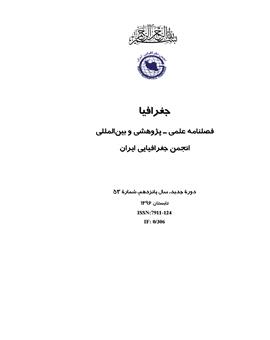عملکرد میانجی¬گری جمهوری اسلامی ایران در بحران ژئوپلیتیک قره¬باغ
محورهای موضوعی :
1 - دانشگاه تهران
2 - تهران
کلید واژه: بحران ژئوپلیتیکی, جمهوری آذربایجان, منطقۀ قره¬, باغ, میانجی¬, گری ایران, ارمنستان,
چکیده مقاله :
حکومت ـ ملّت ها از زمان شکل گیری با بحران های متعدّد سیاسی و ژئوپلیتیکی روبرو شده اند. در بحران های ژئوپلیتیکی که زمینۀ مناقشه بر سر کنترل و به دست آوردن یک یا چند ارزش جغرافیایی قابل ملاحظه است، باعث دیرپایی بحران و عدم حل وفصل آن می شود؛ زیرا مورد مناقشه در زمرۀ منافع ملّی محسوب می شود که امکان مصالحه بر سر آن برای طرف های درگیر وجود ندارد. جمهوری آذربایجان به عنوان مهم ترین بازیگر در منطقۀ ژئوپلیتیکی قفقاز جنوبی بعد از استقلال به دلیل گسترش طلبی ارضی ارمنستان با بحران ژئوپلیتیکی اشغال سرزمین مواجه شد. بحرانی که بعدها با مداخلۀ برخی قدرت ها جنبۀ بین المللی پیدا کرد. ایران به عنوان مهمّ ترین همسایۀ آذربایجان همواره سعی کرده تا به نحوی با مداخله در این بحران جایگاه خود را در میان بازیگران منطقه ای و فرامنطقه ای حفظ کند. بر این اساس تحقیق حاضر، به روش توصیفی ـ تحلیلی در پی بررسی این سؤال اساسی است که عملکرد ایران برای حل بحران قره باغ چگونه ارزیابی می شود؟ نتایج تحقیق نشان می دهد که بحران قره باغ با توجّه به چندلایه بودن، تداوم و پایداری بحران، تعدّد بازیگران و تعقیب اهداف ژئوپلیتیکی خاص توسط میانجی گران ابعاد پیچیده ای به خود گرفته است. ایران نیز بر اساس ماتریس پیچیدۀ بحران و نیز الزامات ژئوپلیتیکی خاص خود اهداف مختلفی را پیگیری می کند: از تشکیل ائتلاف سه گانه بین آذربایجان، ارمنستان و ترکیه جلوگیری کند، مانع از گسترش بحران به سمت مرزهای خود شود و در نهایت، نقش بازدارنده ای در باب حضور بازیگران فرامنطقه ای مانند اسرائیل و آمریکا در کنار مرزهای خود داشته باشد.
Nation-states have encountered several political and geopolitical crises since the outset of their formation and development. In geopolitical crisis that the grounds for the conflict over the control and capture of one or more geographical values are significant, the crisis endures and sustains to some extent and cannot be easily resolved; since the issue of conflict belongs in the national interests upon which no compromise is feasible for the parties involved. The Republic of Azerbaijan, as an important actor in the geopolitical region of Southern Caucasia, faced a geopolitical crisis of the occupied territories due to Armenian territorial expansionism. It was a crisis that gained some international aspects following the intervention of some powers. Iran, as the most important neighboring country to Azerbaijan, has very often attempted to maintain her own position among regional and transregional actors through intervening in this crisis. Accordingly, this current study descriptively-analytically attempts to examine the question how Iran’s performance is assessed to resolve Karabakh’s crisis. The research findings demonstrate that Karabakh’s crisis has become complicated due to its being multi-faceted, its longevity and resistence, the plurality of the actors and the persuit of some particular geopolitical objectives by the mediators. Iran also follows up her own various objectives on the basis of the complex matrix of crisis and her geopolitical implications: prevention of triple coalition of Azerbaijan-Armenia-Turkey; averting the crisis spreading to her borders; playing an inhibitory role against the presence of transregional actors like Israel and U.S. accosting her borders.
